In the Sensipreneur Series I interview HSP’s who have made sensitivity a big part of their own business. This (e-mail) interview is with Artist and ‘art Life Coach’ Marie Mikkonen from crealife.fi and colorisaction.com

A quick intro to Marie’s business: Marie is an artist & life coach who -on the one hand- makes art about her (HSP) life and -on the other hand- helps people express their life and inner wisdom through art. You can find her on: mariemikkonen.com. Marie is an HSP and an empath.
This is her vision:
“I believe that vulnerability, sensitivity and intensity can be our greatest gift to the world and ourselves. It can take a lot of inner work to realize this, because an active imagination, experiencing everything intensely and communicating in colors, feelings, music and rhythm are still not often mainstream society material. This means we need to learn to appreciate our own kind of strength and power. Everybody can find their core, the feeling tone of who they are inside. When we are creating from that essence, we can create a life worth living with ease, grace and enjoyment [i.e. much less pain and suffering].”
How and when did you first realize you are HSP?
I think I’ve always known, in a way. My mother and sister, from my point of view, are also HSP and mom did her best to shelter our sensitivity when we were young. I have always been sensitive to other people’s emotions, to the atmosphere in different places, to lights and sounds. The educational system in Finland was an exhausting experience for me and I frequently hid in the bathroom, to just get five minutes of peace and quiet.
I read Elaine Aron’s book The Highly Sensitive Person when it had come out and everything suddenly made so much sense. What’s helped a lot, is that my husband whom I’ve been together with since I was eighteen, shares many HSP traits. So we’ve built our life together around these sensitivities, now also with our children. Small examples may be that we never have the radio on, there are plenty of calm spaces in our house and “alone time” is considered a basic need. (When my daughter needs quiet time alone, she’ll hide out in the cardboard box ‘house’ by the window)
How did you come up with the idea of your current business?
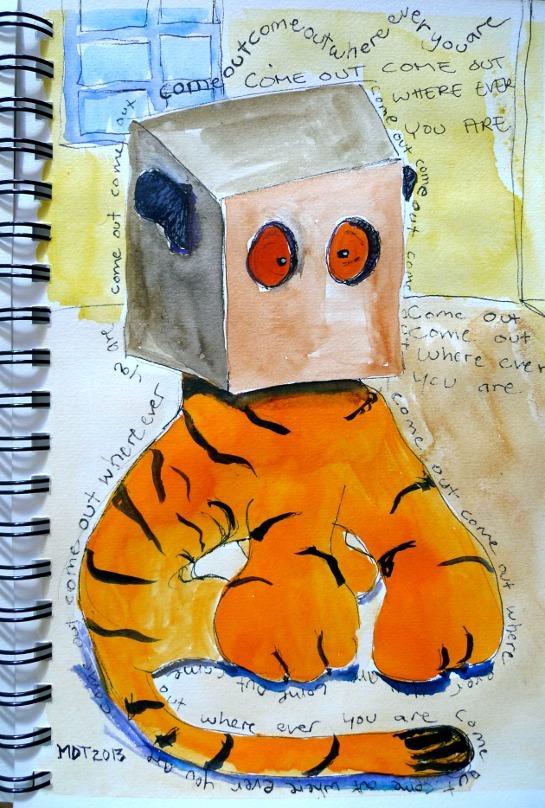 This has been a long, tempestuous journey! I started out, very young, with the yearning to find at least one person who was happy, so I could know that it was possible, that life was about something more than just working and being in pain. Although I didn’t find a person close to me, I found the author Richard Bach. That was enough to give me an impetus to step by step overcome my obstacles and create a life that today is happy, often magical, creative, filled with love and challenges.
This has been a long, tempestuous journey! I started out, very young, with the yearning to find at least one person who was happy, so I could know that it was possible, that life was about something more than just working and being in pain. Although I didn’t find a person close to me, I found the author Richard Bach. That was enough to give me an impetus to step by step overcome my obstacles and create a life that today is happy, often magical, creative, filled with love and challenges.
The business idea started from the impulse to give back, vaguely formed into the idea of helping people find their creativity, find a way to make art every day and be free to form my own business. Now it has evolved into a kernel of art, imagination and creativity that helps people liberate their creativity, anchor it in everyday life and trust their process, so they can create a life worth living.
What are 3 ways you really notice that you are HSP in running your business?
The first would definitely be that when I don’t remember to take care of myself, I’m easily overwhelmed. I like being as present and aware as possible, but to be able to maintain that flow, I need great amounts of time alone. Organizing my work week around this need is crucial.
The second one is similar, but not quite the same. I have a limited capacity for human interaction, because while I enjoy being with people, each encounter drains this container of social energy I have and at some point that container needs to be filled by solitude. (illustration to the right: “sensory overload”)
I optimize everything in my business to suit my family life (which consists of myself and three other HSP’s) and my sensitivity & vice versa. Where I work, how I work, if I have music or not, how much exercise I get, the organization of my art materials, my computers and gadgets – everything. It is all built to support who I am, so I can be both happy and achieve the excellence that I’m striving for.
What are 2 ways in which you have diverted from classic business models to suit your sensitivity?
I believe in building a firm structure and then be in complete freedom within that structure. My business has two main expressions, one is art based and one is centered around coaching. The core of everything is the art making, where I explore everyday creativity and provide support for creative souls who want to create a flourishing every day life. That in turn keeps my coaching practice alive and always brimming with new ways to create life art that helps bring my clients inner wisdom to the surface. I see this as a balance, or maybe a dance, between two essential factors, art and healing. I believe deeply, that it is an optimal, creative and worthwhile everyday life that helps dreams grow.
Inside of these two categories my business is involved in different projects that are all compartmentalized in their own ecosystems. This allows me to control the amount of stimuli, meetings, social interactions in each project and build a suitable timetable around my needs for either solitary work, coaching or facilitating workshops. 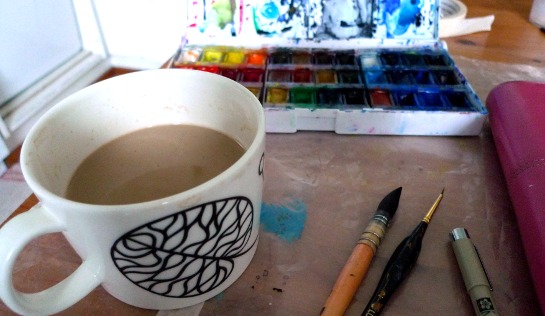 Each project I accept suits my sensitivity in some way and brings out the best parts of being sensitive. For instance, in one project I coach young adults over the internet. This cuts out all logistics, all stimuli connected to body language and being in a new space and needing to present myself professionally. Another example of this is that instead of having an artists studio, I paint and draw at home, where the ambiance is how I want it to be and no extra effort goes to other kinds of stimuli or disturbances.
Each project I accept suits my sensitivity in some way and brings out the best parts of being sensitive. For instance, in one project I coach young adults over the internet. This cuts out all logistics, all stimuli connected to body language and being in a new space and needing to present myself professionally. Another example of this is that instead of having an artists studio, I paint and draw at home, where the ambiance is how I want it to be and no extra effort goes to other kinds of stimuli or disturbances.
How has – when you look back – your sensitivity proven to be an advantage in having and running your own business?
Being sensitive is what helped me become an entrepeneur in the first place. Being in a regular work place became too draining to be worth the money. It was impossible to build in all the time, space and freedom that I needed to bring forth my best work.
My sensitivity helps me, or rather forces me to, prioritize. What is truly important? What do I need to make my goals happen? Is this really who I am? When I don’t listen to these essential questions and their answers, my work becomes muddy, I start numbing myself and my life appreciation goes down. There is always an immediate feedback system on how wise my decisions are and how well the work is going.
What is one thing you still struggle with with regards to being a Sensipreneur?
Sometimes, when I look at other people and how well they are able to function in the world, the long days they work and how they can sit in endless meetings, attend all these seminars and just meet so many people – I feel inadequate. My need for solitude and quiet seems disproportionate at times.
But then I look at my children 5 and 7, who do not question their need to be alone or to find a place to retreat to, but do it naturally because they’ve always had space for it. And I feel, we’re on to something good, just being who we are.
What is the one thing you would have liked to know (and that you now do know) about being a Sensipreneur when you first considered starting your own business?
I wish someone would have told me that taking care of my needs – exactly as they are with no judgments about them, or comparisons to other people – is the key to freeing up my excellence. Sensitivity brings with it a huge vulnerability. But it is through sharing that vulnerability openly that the power of being sensitive is opened. Anyone who is sensitive has the perfect guidance system to happiness inside of them & when we learn to decode its messages, a happy everyday life is simple to create.
All illustrations in this article are Marie’s artwork.













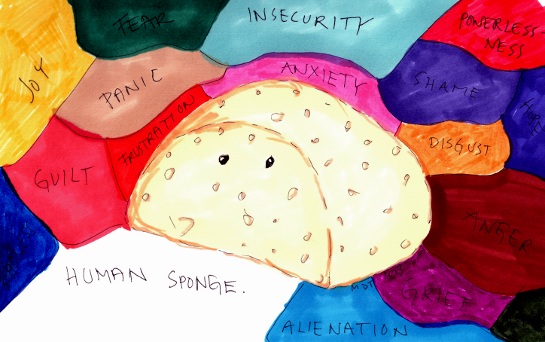
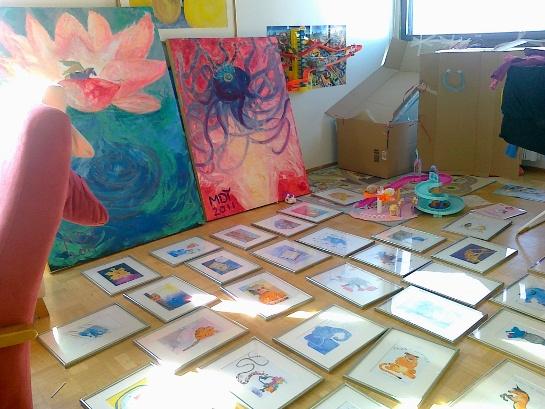
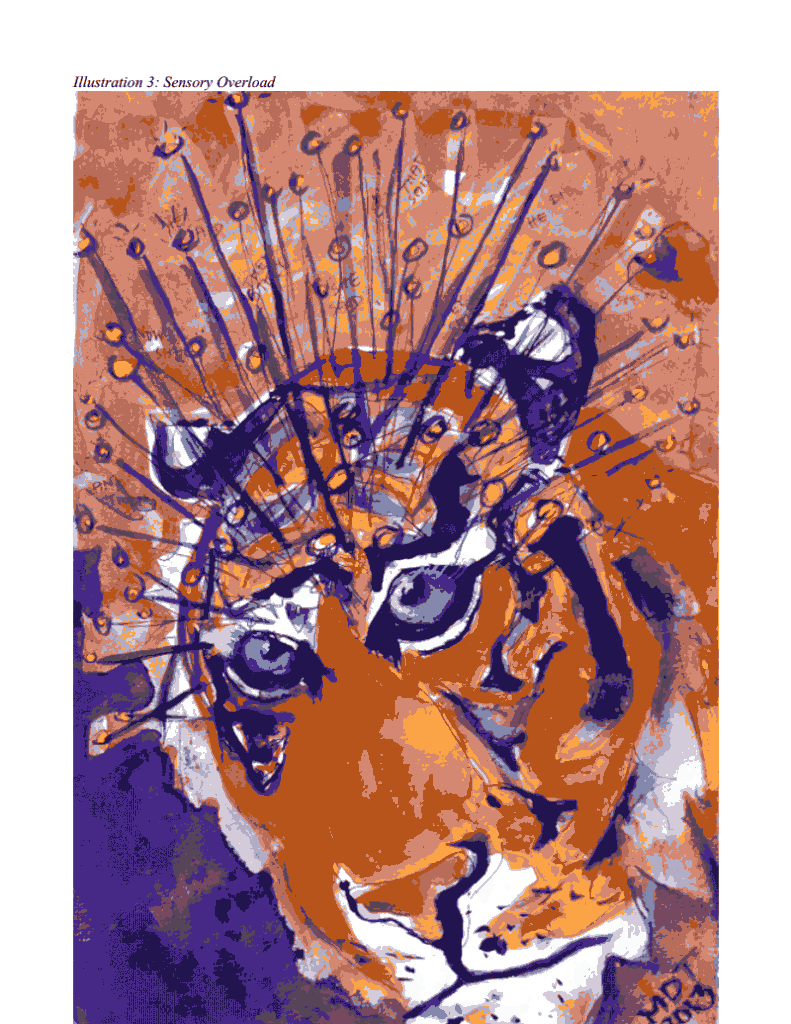







Comments on this entry are closed.